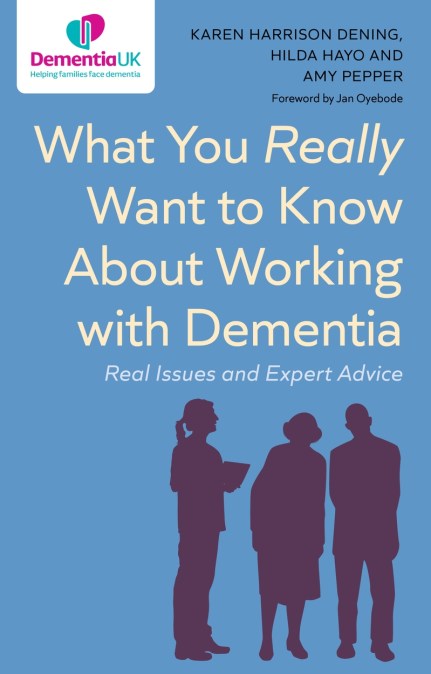Dementia can add a layer of complexity to health and social care, as problems with communication and understanding can make it more difficult to diagnose and treat other conditions and illnesses. For many people living with dementia, generalist clinicians in primary care will be their first port of call. This FAQ guide examines issues experienced by these clinicians during their daily practice, and offers expert advice on how to support people living with dementia.
Each section includes a case study to illustrate a common concern, followed by analysis of the underlying issues and suggested approaches or solutions from an experienced Admiral Nurse. Topics include distressed behaviours at home and in clinical settings, managing fall risk, supporting older carers or those with disabilities, and advance care planning.
This evidence-based guide sets out skills and approaches for all health professionals to provide excellent person-centred care for people living with dementia.
Each section includes a case study to illustrate a common concern, followed by analysis of the underlying issues and suggested approaches or solutions from an experienced Admiral Nurse. Topics include distressed behaviours at home and in clinical settings, managing fall risk, supporting older carers or those with disabilities, and advance care planning.
This evidence-based guide sets out skills and approaches for all health professionals to provide excellent person-centred care for people living with dementia.
Newsletter Signup
By clicking ‘Sign Up,’ I acknowledge that I have read and agree to Hachette Book Group’s Privacy Policy and Terms of Use
Reviews
I am delighted to see this book actually based on what health and social care professionals want to know about dementia care. The chapters use complex or challenging case studies or related examples, with expert navigation and advice from an experienced Admiral Nurse to add context, guidance and understanding. As a result the Admiral Nurses and their colleagues have given a really useful practical text which I hope will get the wide readership it truly deserves.
Drawing directly from the specialist skills, values, and practice knowledge of Admiral Nurses, this accessible book is a treasure-trove of (in)valuable information for generalist practitioners working with, and alongside, people affected by dementia in any environment of care. It is essential reading.
Highly practical, exceedingly well-informed, clearly relevant to day-to-day practice, this book provides a useful and stimulating resource for those - in many different circumstances - who work with people living with dementia. This should be no surprise, given the standing of the Admiral Nurses who have contributed their wisdom to these pages.
